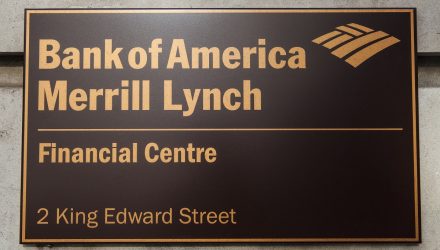With a rare historical event to start the week off, as futures markets were locked limit down in overnight trading on Sunday, and investors panicked over the coronavirus and oil crashed, many investors may be getting PTSD from 2008, when stocks got rocky, the VIX spiked, and the financial crisis began.
However, according to certain big banks, panicked investors should have their nerves assuaged because the factors at play in this market are substantially more disparate from those 12 years ago, executives from Merrill Lynch Wealth Management and Bank of America said on Tuesday.
“As of right now, we are not in the camp that the U.S. develops a recession through this,” said Chris Hyzy, chief investment officer at Merrill and Bank of America Private Bank.
Hyzy noted that for individual investors, it’s crucial not to get overwhelmed by headlines, and to maintain personal goals and the corresponding financial strategies to help achieve them.
“In the case of fast-moving markets, it’s trying to help ensure that we maintain perspective when emotions can be running high and remind clients of the work that’s happened,” said Andy Sieg, president of Merrill Lynch Wealth Management.
This is nowhere more clear than in present market conditions, where the Cboe Volatility Index rocketed to its loftiest since 2008 on Monday as a plunge in oil prices upset traders already on edge over the coronavirus.
The VIX is reaching epic levels, having spiked over 62 Monday, as investors panicked over futures markets being locked limit down in overnight trading on Sunday, the coronavirus, and oil crashing to nearly $27 a barrel.
“The VIX follows some very specific patterns that show compression,” Henrich said last year on CNBC’s “Trading Nation.” “If you look back to, let’s say, the last few years, we’ve seen a large compression pattern from 2016 to 2017.”
“When that energy compresses too much, then we see these spikes,” the strategist said. “We have seen these spikes with quite a bit of regularity, but they always need some sort of trigger.”
More importantly, once the VIX breaks loose, the price often swings wildly, which is why the S&P 500 had moved in ranges as wide as 200 points recently when just weeks ago, those ranges were often only 20-40 points. Such moves rattle even the most experienced investors, while terrifying greenhorns.
However, as history shows, volatility does compress, and markets climb higher once again. This is why despite the sharp dips in stocks (apart from Tuesday’s rally), there’s no excessive fear among Merrill Lynch’s wealthy clients, Sieg said.
One reason for this calmer attitude is that clients are already focusing on how the economic and market environment is going to appear once things calm down a bit, he said.
“You can see the potential for an environment of low rates, low energy prices, equity markets that have corrected to attractive levels, and the foundation is laid for the next leg of the bull market,” Sieg said.
Sieg added that being diversified is very helpful as well in these tumultuous times.
“A well-diversified portfolio, from a positioning perspective, is performing well during this environment,” Hyzy said.
For investors looking at ETFs to play safer sectors and stocks, the Invesco BLDRS Emerging Markets 50 ADR Index Fund (ADRE) and the Franklin FTSE China ETF (FLCH) are two options to consider. These include sectors like the Chinese internet, telecom, education, and Indian IT, which BNP Paribas believes are safer investment choices and include companies like Alibaba, Baidu, and Tencent.
For more market trends, visit ETF Trends.

